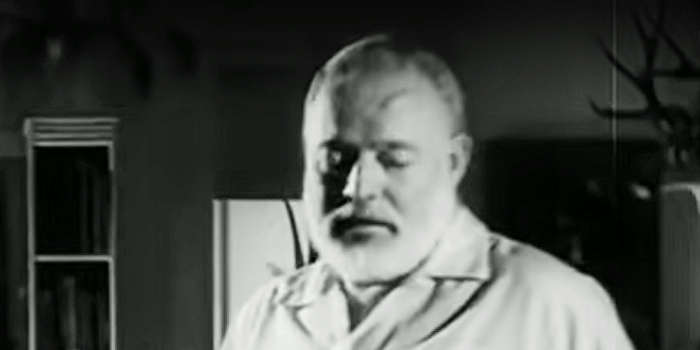(Corine Gatti, Headline USA) Nobel Prize-winning novelist Ernest Hemingway may have committed suicide by shotgun blast in 1961, but it is snowflake modern readers more than half a century later who will be getting the trigger warning.
The Telegraph reported that Penguin Random House, which published Hemingway’s novels and short stories, planned to warn future readers about the language and attitudes present in his writing.
The newest edition of his debut novel, The Sun Also Rises, contained a disclaimer stating, “This book was published in 1926 and reflects the attitudes of its time.”
The book was not censored, but the publisher made clear nonetheless that it did not approve of Hemingway’s perspectives.
“The publisher’s decision to present it as it was originally published is not intended as an endorsement of cultural representations or language contained herein,” the disclaimer warned.
Hemingway biographer Richard Bradford, who wrote, The Man Who Wasn’t There: A Life of Ernest Hemingway, blasted the publisher, according to PJMedia.
The warnings “would be understandable had they brought out a new translation of Mein Kampf,” Bradford wrote, referring to Adolf Hitler’s anti-Semitic manifesto, in which he first outlined his plans for the Holocaust.
While Hemingway was known for his machismo and occasional misogyny, his views also were often considered progressive for his time. To contemporary leftist academics, however, he is viewed derisively in hindsight as a quintessential symbol of the white, male, Western literary hegemony that dominated 20th-century culture.
“They seem to imply that, because it’s a literary classic, they’re willing to take a deep breath and warn readers with delicate sensibilities that something in it might unsettle them,” Bradford wrote.
Hemingway’s short-story collection Men Without Women also came with a warning label that the book was originally published in 1927.
Bradford suggested publications may be required to carry warnings similar to those on cigarette packets in the future.
“Publishers and the literary establishment as a whole now seem to be informed by a blend of stupidity and bullying regarding what readers should be allowed to think,” he said. “The publisher’s comments would be hilarious, were they not also alarming.”
The Telegraph noted the publisher has not decided whether they will add a trigger warning to new editions of Hemingway’s other books, such as For Whom the Bell Tolls and The Old Man And the Sea.
Publishers have edited out potentially offensive passages from Ian Fleming’s James Bond novels and Agatha Christie’s mysteries to ensure that readers won’t get upset.
F. Scott Fitzgerald’s The Great Gatsby—a glamorous depiction of Long Island’s elite gold coast in the 1920s, was another book hit with a content warning. The University of Chester in England also put content warnings on Harry Potter and the Philosopher’s Stone.

